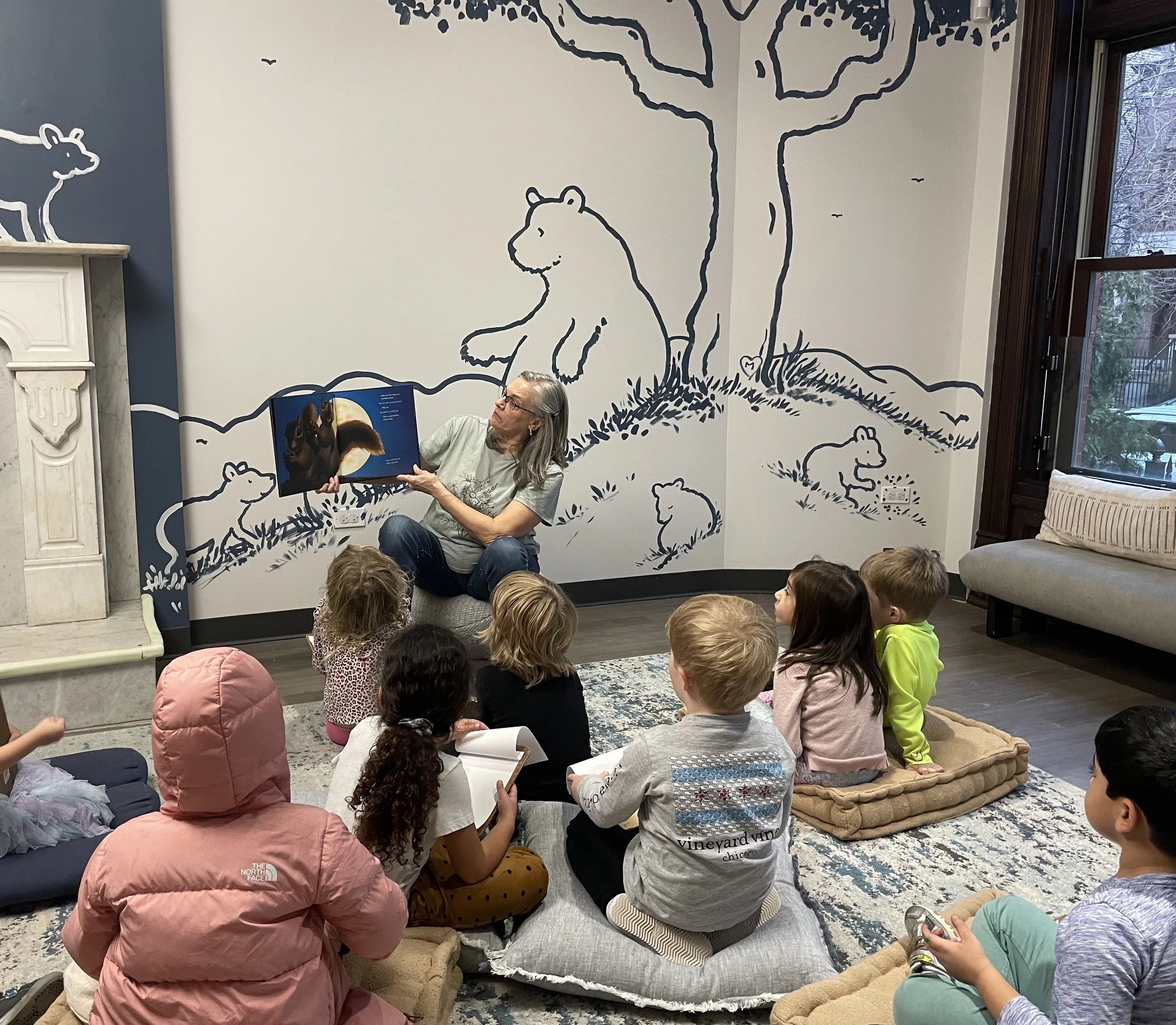What a year it’s been! A year of discoveries, triumphs and, at times, disappointments. For all of us, this time of year is marked by a mixture of emotions. We are so proud of how much children have grown and excited for their next steps, but also wistful and a bit sad to say goodbye.
Firsts and Lasts
When you think of your child’s growth and development, do you think about all the “firsts?” Celebrating first steps and first days of school and first wobbly bike rides is natural. As we look forward to the next new thing, it can be easy to overlook some of the sweetest parenting milestones - the “lasts.”
Following children’s lead
Communication and Niceties
Here at school, we don’t insist that kids use pleasantries like please and thank you. Teachers definitely model the use of these polite words, and certainly don’t discourage kids from using them, but we think that focusing on them too much can complicate the already-challenging work of self-expression and reciprocal communication.
Autonomy
Thank you for attending parent’s day last week! It was wonderful to see kids and parents playing together, and kids explaining how things go here at school. From our handwashing routine at arrival, to helping themselves to toys and activities, kids know all about school and they relish being the experts as they show you around their classroom. Kids have learned that school is their place, and that things are set up for their size and pace. They’ve become familiar with where to find the playdough and how to set up favorite board games, they’ve gotten to know the teachers and the rest of the kids in their class. They are also getting to know themselves more as they navigate group life, and discovering their own interests, strengths, and challenges.
Friendship
At this point in the year it’s fun to see the ways kids are connecting with one another in all our classrooms. Children are growing socially, from the youngest toddlers to the oldest JK kids. The process of connecting with another child, playing together and making friends is an exciting and delightful part of being in Nursery School. It can also be a messy, emotional, and thought provoking process for little kids.
Happy New Year and Welcome Back to School!
As your child renews their connection to their teachers, classroom, and classmates they may need a little extra support to get back into the school routine. This doesn’t mean that they’re regressing, or that they will need another extensive separation plan. Now that they know their classroom and teachers, they will pretty quickly reacclimate to the classroom rhythms and embrace the routines that are already familiar.
During these first few days back, it can help if their adults do some things with and for them - even the things they already know how to do. So maybe they will need help with dressing before you leave, or want you to stand right with them at the sink to help wash hands when they arrive at school. They may shy away from teachers or kids after such a long time away. You can offer teachers your own greetings, and make some observations about the classroom to help your child find something they’ll want to play. You can be assured that teachers are ready to help your child reenter, and will offer you support as you settle them in and say goodbye.
We all look forward to continuing the school year and beginning a new calendar year with our Park West Community!
Best,
Anita
Adapting our Responses
Navigating life with young children can really keep us on our toes, and requires an ability to constantly adapt and adjust. Just when we figure out the demands of our sleepy newborns, they become more alert and awake, and require a shift in the kinds of stimulation and support they require. Toddlers need a different kind of input, as do preschoolers, then primary age kids and tweens, then teens, and so on. Each stage places different demands on parents or caregivers, and requires us to always be shifting our approach to meet a child’s changing developmental needs.
Here Come the Holidays!
Many of us will be celebrating Thanksgiving next week and some of the things I’m most grateful for are my Park West community, and for the part each of you plays in our Co-op. As the days grow colder and darker, it’s nice to take a moment to think of the light you all bring to our school. Your children brighten our days, with their lively ideas and fresh outlooks. Your work for school bolsters our efforts to provide a meaningful place for children to play and learn. I’m thankful to share these days at school with all of you.
Helping Children Manage Difficult Feelings
Emotions are a natural part of life, and young children have big feelings that can shift quickly. At Park West we don’t think children need to be protected from their feelings, and we don’t try to jolly them through feeling sad that mom left, or feeling mad that they can’t have all the turns with the dump truck. We think it’s important to help children recognize, express and manage their emotions.









